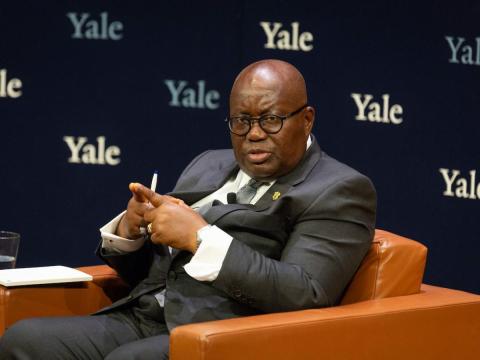
The presidency that made this known on Twitter on Wednesday also said it will pump $2 billion into the economy to “rescue the cedi” currency,
Political appointees’ salaries will be cut by up to 30 per cent as part of measures to ease its financial problems, Ghana’s government disclosed.
The presidency that made this known on Twitter on Wednesday also said it will pump $2 billion into the economy to “rescue the cedi” currency,

The West African country is facing rampant inflation, a depreciating local currency and a heavy debt burden that has dented investor confidence and could build up into a debt crisis, according to Reuters.
The cedi is said to be weakened by about 20 per cent against the dollar this year, exacerbating its problems.
In a tweet on Wednesday, the Ghana presidency listed 4 measures geared towards mitigating hardships in the Ghanaian economy.
They are as follows: “Cabinet agrees border reopening within 2 weeks; Government cuts salaries of appointees by up to 30%, Policy rate increased substantially to 17%; cost of loans to go up and Government to pump $2bn to rescue cedi.”
The Ghana Federal Ministry of Information explained in a letter that the president acted that way so as to provide economic relief for the people, among other things.
The letter partly reads, “In addition to the scheduled appraisal of the performance of Government programs, cabinet also extensively discussed the impact of global economic difficulties on Ghana and the Ghanaian people.
“President Nana Addo Dankwa Akufo-Addo approved a number of far-reaching measures aimed at mitigating the depreciation of the Cedi, ensuring expenditure discipline, and providing relief in the face of global fuel price hikes and inflation well as ensuring that priority programs meant to grow the economy are protected.”
According to the report, the announcement from President Nana Akufo-Addo follows the central bank’s decision on Monday to hike its main lending rate by 250 basis points to 17 per cent, the largest increase in Ghana’s history.